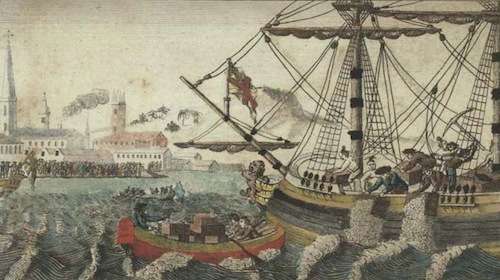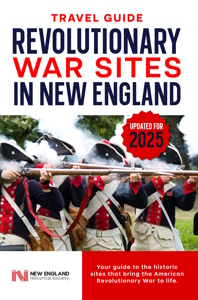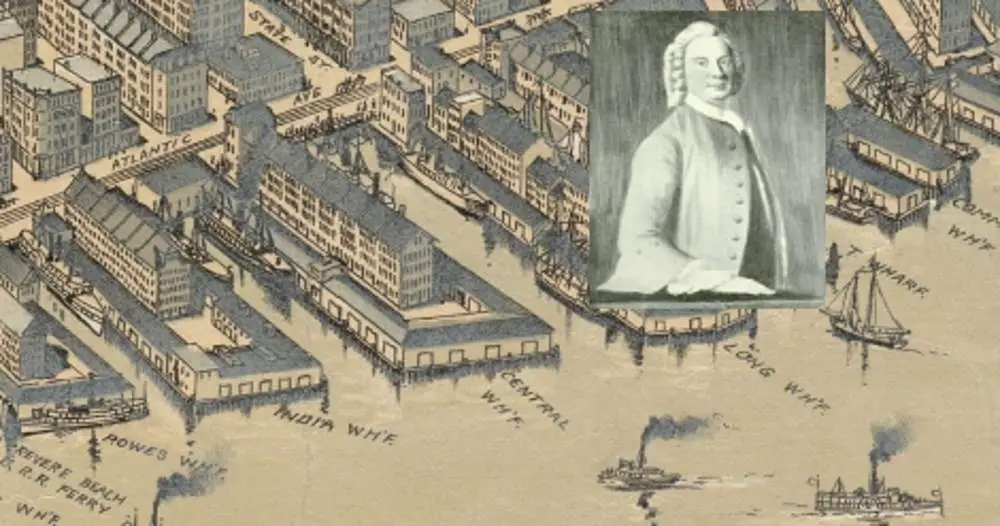John Rowe was a prominent Boston merchant, socialite and politician at the time of the American Revolution. Born in England in 1715 he died in America in 1787. In between, he made a fortune in America.
Rowe placed business as his primary concern. His politics reflected his priorities, as he tried very hard to take neither side in the fight between England and America.
Here are 10 facts about the man who managed to stay neutral through the Revolutionary War.

John Rowe
1. Rowe’s Wharf Named for Him.
John Rowe was a land developer as well as a ship owner. He owned vast swaths of property, and today his name remains a Boston landmark. He is the Rowe of Rowe’s Wharf, the location of the Boston Harbor Hotel. It is built on a wharf Rowe owned.

1899 map of Boston showing Rowes Wharf
2. He Took Part in the Loyal Nine.
When Britain passed the Stamp Act of 1765, a group of Boston businessmen organized a secret organization, called the Loyal Nine. They intended to agitate and prevent the act from going into effect. The Loyal Nine ushered in the Sons of Liberty, who instigated the riot that destroyed colonial governor Thomas Hutchinson‘s home in 1765.
3. He Owned a Tea Party Ship.
Rowe owned the Eleanor, which was carrying a cargo of tea in Boston Harbor on the day of the Boston Tea Party in 1773. The ship was raided as part of the protest against the Tea Act, and the tea it contained dumped into the harbor. Rowe was a member of the Boston “Donation Committee,” which coordinated the dispersal of funds contributed to Massachusetts to offset the suffering caused by the British blockade of the port (retaliation for the Boston Tea Party).

The Boston Tea Party
4. ‘Salt water and tea,’ he said.
Rowe’s role in the Boston Tea Party has been debated for centuries. One account of the events of the day of the Tea Party suggests Rowe attended a meeting in Boston’s Old South Meeting House. He was heard to say, “perhaps salt water and tea will mix tonight.” Some suggested that meant he supported the protest. Several witnesses noted his presence at the meeting. Some suggested he was one of the rioters who tossed tea into the harbor. Rowe’s diary, however, says he stayed at home all day, feeling ill. Of the tea party, he wrote, “this might, I believe, have been prevented. I am sincerely sorry for the event.”
5. The British Pillaged His Belongings.
Rowe did not flee Boston during the British siege of the city at the start of the Revolution, as John Hancock and Sam Adams did. But he was not fully in British favor. When British troops evacuated the city they ransacked his store and stole a good deal of his merchandise.

The British evacuating Boston
6. He Did Not Favor War.
Though there is no record that Rowe was a pacifist, he did not favor war against Britain. He believed his whole life that the conflict between Britain and America could be resolved through negotiation. This put him at odds with John Hancock and Sam Adams.
7. He Smuggled.
Part of John Rowe’s fortune came from smuggling. This was not uncommon, as businesses worked to find ways around British trade and tax regulations. Rowe and others, such as Hancock, never recorded how much of their fortunes came from illegal activities.
8. Thomas Hutchinson Disliked Him.
Rowe, who was very active socially, had a remarkable number of friends and acquaintances on both sides of the political debate. He counted both Samuel Adams and colonial governor Thomas Hutchinson as friends, yet both opposed him politically. Adams ran against Rowe for office and backed John Hancock against Rowe in political contests.

Thomas Hutchinson in 1750.
Hutchinson, meanwhile, thought Rowe belonged to the group behind the destruction of his home in the Stamp Act riot of 1765. Hutchinson wrote: “When there is occasion to burn or hang effigies or pull down houses, these [rabble] are employed; but since government has been brought to a system, they are somewhat controlled by a superior set consisting of the mastermasons, and carpenters, &c., of the town of Boston. When anything of more importance is to be determined, as opening the custom-house on any matter of trade, these are under the direction of a committee of the merchants, Mr. Rowe at their head . . .”
9. He Survived the 1765 Financial Panic.
Nathaniel Wheelwright was a prominent Boston merchant whose businesses collapsed spectacularly in January of 1765. Wheelwright fled the city, but he left behind debts of more than £150,000, an enormous sum. In his diary Rowe notes that the panic touched him indirectly as he had lent money to friends who had loaned money to Wheelwright, and his friends failed financially. Reflecting Wheelwright’s preference for business over politics, his diary contains far more discussion of the bankruptcy and mediation proceedings to settle the debt than the politics of the day.
10. He Most Likely Owned Slaves.
Slavery was not the economic engine in the northern colonies that it was in the south, but slaves existed in the mid 1700s. Rowe advertised in 1746 that he would like to purchase some slaves that could work as carpenters for him.
* * *

Learn more about Revolutionary history in this complete guide to Revolutionary War sites in New England. Brought to you by the New England Historical Society. Click here to order your copy today.
This story updated in 2025.


3 comments
John Rowe was shunned from attendance at the April 8, 1776 Masonic funeral service for Doctor/General Joseph Warren conducted at Boston’s King’s Chapel. His diary noted he did not understand why he was treated so.
[…] all the other wharves and rose to such a surprising height that Bostonians could sail in boats from Rowe’s Wharf to Merchants Row near what is now Faneuil Hall. The waters filled all the cellars and the floors of […]
[…] all the other wharves and rose to such a surprising height that Bostonians could sail in boats from Rowe’s Wharf to Merchants Row near what is now Faneuil Hall. The waters filled all the cellars and the floors of […]
Comments are closed.